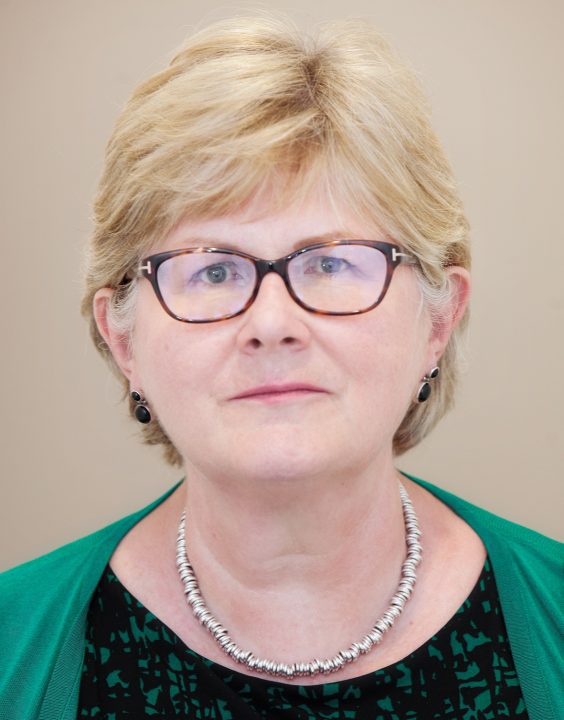On 26 February 1869, a special meeting was convened at a small hotel in London to consider setting up an organisation for the protection of building societies. Ever since, the Building Societies Association (BSA) has been championing an industry firmly rooted in co-operative values.
As membership organisations, building societies are owned by their savings and mortgage customers. Profits are reinvested for the benefit of members and communities that societies serve. Building societies in the UK now have 25 million members … and growing.

More than 150 years on from its inaugural meeting, the BSA is the trade association for all 43 UK building societies and six of the larger credit unions, all of which are mutuals. It is also a member of the European Association of
Co-operative Banks (EACB).
The BSA conducts research, convenes working groups, and champions financial resilience, diversity and inclusion in the workplace. It also works hard in the expanding field of green finance and making housing more accessible at a time when property ownership is all too often perceived as a pipe-dream.
Hilary McVitty, who has held a number of senior roles in the building society and banking sectors, has been BSA head of external affairs since 2011.
“We are all part of the mutual family,” she says. “We represent all UK building societies and some of the larger credit unions and do quite a lot of work with the Friendly Societies. Overall, there are fewer building societies than there used to be but they are much larger.”
It is a real marker of the difference mutuality can make that over the last few years, building societies have paid out significantly more in interest to savers than banks have been able to do.
Related: Coventry Building Society secures Fair Tax Mark
“A business owned by customers doesn’t have shareholders expecting maximum returns,” says Ms McVitty, adding that profit is important, but to re-invest for the future, not to maximise profits to pay-out in dividends.
“This is how building society savers got £2.4bn more interest in the last three years than they would have got at big banks. Everybody is operating within the overall market rate set by the Bank of England. It’s now gone up a couple of times but even so, it is way below inflation and that sets the overall environment in which we are setting mortgages and savings.
“The general interest rate environment that affects everything and everyone is very low. We need to balance the interest charged to borrowers and the amount you pay to savers. Savers might receive a slightly lower income but we are much steadier and have a particular attitude to risk.”
The first-ever building society – Richard Ketley’s – was formed at the Golden Cross Inn, Birmingham in 1775. The story goes that patrons waived their last pint and put the money into a communal pot to build houses. Each home was assigned to a Society member via ballot, and the process started again until every member had a home of their own, sparking the Building Society Movement.
Related: European co-operative banks continued to grow in 2020
Then, as now, getting a roof over one’s head was a major struggle and in 2022 Hilary acknowledges times are very hard. That’s why building societies are more likely to help the self-employed, students, self-builders, older borrowers and those wanting to explore intergenerational mortgages to help families onto the housing ladder.
Building societies are major players in the provision of shared ownership mortgages: typically someone buys 25% of their property and pays a mortgage on that, with the rest generally owned by a housing association, and they pay rent on that portion. Over time they can increase the amount they own up to 100%. Many younger people are opting for this style of home-ownership as it gives them a real stake in their homes.

Societies are also leading the charge with self-build homes – the fact they really know their areas and communities and tend to underwrite a loan manually means they are well placed to do this more complex type of lending. The same goes for lending to the self-employed. Manual underwriting – when a person considers a mortgage application rather than a computer algorithm, allows societies to serve those underserved in the rest of the mortgage market.
“We cannot control house prices, that’s out of our gift, but we are lobbying to build more properties,” says Ms McVitty. “Prices are driven up because there is not enough housing and we are looking for the government to have joined-up, long-term housing policies. We also look at ways of constructing mortgages that help people.”
Related: Co-op banks explore their role in driving the green transition
Deposits are an issue in pretty much all the consumer surveys the BSA carries out: “Around 59% tell us raising a deposit is the biggest barrier. So one of the things the BSA has done is offer family deposit mortgages, where mums and dads or an existing borrower can borrow against equity and give to a family borrower, putting savings into an account as a level of security.”
Despite the current financial climate, she is optimistic that building societies can be key in helping people weather the storm.
“I totally accept it is difficult but this is not necessarily a new phenomenon. In the late 1980s to early 1990s, when tax relief on mortgages was removed, people were scrambling around to get mortgages. We have also been through negative equity. There are always all sorts of bumps in the road. Building societies have been through thick and thin and adapted to all sorts of changes and conditions, including world wars and pandemics.”
At the height of the Covid-19 pandemic, the BSA did its utmost to keep branches open, helping people who were vulnerable to access cash and in some cases, actually physically delivering it.
During this time, the sector processed hundreds of thousands of mortgage payment deferrals for people who were worried about how they would survive financially.
“Today we have a cost of living crisis and we are very much involved with thinking about anyone who thinks they may have difficulty paying their mortgage. We are keeping a very close eye on arrears and are mindful it may become a huge problem. What we do not want is people to think that if they say nothing their problems will go away.”
Building societies have ensured generations are financially safe and secure. In the years to come, the BSA is aiming to further levels of co-operation across the mutual sector, engaging younger people as much as possible, taking on the challenges around sustainability and climate change.
“If I talk to my sons about mutuality their eyes glaze over, but they understand the concept of customer ownership,” Ms McVitty says. “Mutuals across a range of different businesses including co-ops and Friendly Societies can work together on the challenge around helping people understand the mutual difference.
“Ownership matters. Every business says it has customers ‘at its heart’ but mutuals really do. It’s what staff and customers tell us, because being customer-owned drives our strategy, culture and behaviour. Staff working for societies say 39% of all the value created goes to their customers; staff at plcs say it’s 19%. Service, trust and competitive rates get high scores from building society customers, as does being treated fairly. Mutuality doesn’t make us perfect, but it means long-term and daily decisions are for people – customers, staff and communities.”

